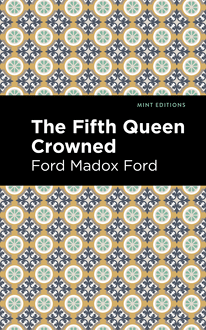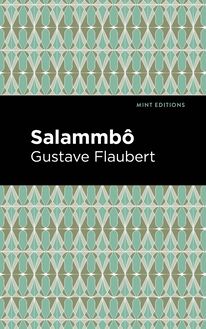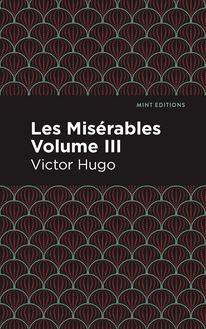-
 Univers
Univers
-
 Ebooks
Ebooks
-
 Livres audio
Livres audio
-
 Presse
Presse
-
 Podcasts
Podcasts
-
 BD
BD
-
 Documents
Documents
-
- Cours
- Révisions
- Ressources pédagogiques
- Sciences de l’éducation
- Manuels scolaires
- Langues
- Travaux de classe
- Annales de BEP
- Etudes supérieures
- Maternelle et primaire
- Fiches de lecture
- Orientation scolaire
- Méthodologie
- Corrigés de devoir
- Annales d’examens et concours
- Annales du bac
- Annales du brevet
- Rapports de stage
La lecture à portée de main
Vous pourrez modifier la taille du texte de cet ouvrage
Découvre YouScribe en t'inscrivant gratuitement
Je m'inscrisDécouvre YouScribe en t'inscrivant gratuitement
Je m'inscrisEn savoir plus
Vous pourrez modifier la taille du texte de cet ouvrage
En savoir plus

Description
Privy Seal: His Last Venture (1907) is a novel by Ford Madox Ford. The second installment of Ford’s The Fifth Queen Trilogy is set during the reign of Henry VIII, a tumultuous time of political and religious oppression in a land at the mercy of a murderous King. Ford’s trilogy recreates Tudor England in a masterful story of court intrigue, romance, and betrayal. Focusing on the tragic figure of Katharine Howard, the fifth wife of the King, Ford investigates the interconnection of sex and power in a political atmosphere clouded by violence and espionage. Depicting some of the era’s most notorious figures, including Thomas Cromwell, Bloody Mary, and the King himself, Ford makes history both entertaining and undeniably human. Brought to the court of King Henry VIII by her cousin Thomas Culpeper, Katharine Howard, a noblewoman whose family’s fortunes had been in decline for some time, inadvertently catches the eye of his majesty. Given a position as a lady in waiting for Lady Mary, Howard—though opposed by the brutally efficient schemer Thomas Cromwell—soon distinguishes herself in the eyes of the King, who makes her his fifth Queen. Thrust into the spotlight at the age of seventeen, she finds herself forced into an impossible role as a public figure whose every move could enrage her notoriously violent husband. Howard has traditionally been seen as a minor figure in the history of Tudor England. For Ford, however, a master storyteller with an eye for tragedy and a skill for developing flawed, convincingly human characters, Howard is a woman whose life and death are not only worthy of literature, but instructive for the men and women of Edwardian England. In Privy Seal, he focuses on the figure of Thomas Cromwell, a powerful advisor to the King who comes to see Katharine as a rival whose good nature threatens his ambitious political agenda. With a beautifully designed cover and professionally typeset manuscript, this edition of Ford Madox Ford’s Privy Seal: His Last Venture is a classic work of British literature reimagined for modern readers.
Sujets
Informations
| Publié par | Mint Editions |
| Date de parution | 08 juin 2021 |
| Nombre de lectures | 0 |
| EAN13 | 9781513293653 |
| Langue | English |
| Poids de l'ouvrage | 2 Mo |
Informations légales : prix de location à la page 0,0450€. Cette information est donnée uniquement à titre indicatif conformément à la législation en vigueur.
Extrait
Privy Seal
His Last Venture
Ford Madox Ford
Privy Seal: His Last Venture was first published in 1907.
This edition published by Mint Editions 2021.
ISBN 9781513290805 | E-ISBN 9781513293653
Published by Mint Editions®
minteditionbooks.com
Publishing Director: Jennifer Newens
Design & Production: Rachel Lopez Metzger
Project Manager: Micaela Clark
Typesetting: Westchester Publishing Services
C ONTENTS P ART O NE . T HE R ISING S UN I II III IV V VI VII P ART T WO . T HE D ISTANT C LOUD I II III IV V VI VII P ART T HREE . T HE S UNBURST I II
PART ONE
THE RISING SUN
I
The Magister Udal sat in the room of his inn in Paris, where customarily the King of France lodged such envoys as came at his expense. He had been sent there to Latinise the letters that passed between Sir Thomas Wyatt and the King’s Ministers of France, for he was esteemed the most learned man in these islands. He had groaned much at being sent there, for he must leave in England so many loves—the great, blonde Margot Poins, that was maid to Katharine Howard; the tall, swaying Katharine Howard herself; Judge Cantre’s wife that had fed him well; and two other women, with all of whom he had succeeded easily or succeeded in no wise at all. But the mission was so well paid—with as many crowns the day as he had had groats for teaching the Lady Mary of England—that fain he had been to go. Moreover, it was by way of being a favour of Privy Seal’s. The magister had written for him a play in English; the rich post was the reward—and it was an ill thing, a thing the magister dreaded, to refuse the favours of Privy Seal. He consoled himself with the thought that the writing of letters in Latin might wash from his mouth the savour of the play he had written in the vulgar tongue.
But his work in Paris was ended—for with the flight of Cardinal Pole, who had left Paris precipitately upon news that the King of England had sent a drunken roisterer to assassinate him, it was imagined that soon now more concord between Francis and England might ensue, and the magister sat in his room planning his voyage back to Dover. The room was great in size, panelled mostly in wood, lit with lampwicks that floated in oil dishes and heated with a sea-coal fire, for though it was April the magister was of a cold disposition of the hands and shins. The inn—of the Golden Astrolabe—was kept by an Englishwoman, a masterful widow with a broad face and a great mouth that smiled. She stood beside him there. Forty-seven she might have been, and she called herself the Widow Annot.
The magister sat over his fire with his gown parted from his legs to warm his shins, but his hands waved angrily and his face was crestfallen.
“Oh, keeper of a tavern,” he said. “It is set down in holy writ that it is not good for a man to be alone.”
“That a hostess shall keep her tavern clean is writ in the books of the provost of Paris town,” the Widow Annot answered, and the shadow of her great white hood, which she wore in the older English fashion, danced over the brown wooden beams of the ceiling.
“Nay, nay,” he answered, “it is written there that it is the enjoined devoir of every hotelier to provide things fitting for the sojourners’ ease, pleasure and recreation.”
“The maid is locked in another house,” the hostess answered, “and should have been this three week.” She swung her keys on a black riband and gazed at him masterfully. “Will your magistership eat capon or young goat?”
“Capon will have a savour like sawdust, and young goat like the dust of the road,” the magister moaned. “Give me the girl to wait upon me again.”
“No maid will wait upon thee,” she answered.
“Even thou thyself?” he asked. He glanced across his shoulder and his eyes measured her, hers him. She had large shoulders, a high, full stomacher, and her cheeks were an apple-red. “The maiden was a fair piece,” he tittered.
“Therefore you must spoil the ring of the coin,” she answered.
He sighed: “Then eat you with me. ‘ Soli cantare periti Arcades. ’ But it is cold here alone of nights.”
They ate goat and green leeks sweetened with honey, and wood thrushes pickled in wine, and salt fish from the mouth of the Beauce. And because this gave the magister a great thirst he drank much of a warmed wine from Burgundy that the hostess brought herself. They sat, byside, on cushions on a couch before the warm fire.
“ Filia pulchra mater pulchrior! ” the magister muttered, and he cast his arms about her soft and plump waist. “The maid was a fair skewer, the hostess is a plumper roasting bit.” She took his kisses on her fire-warmed cheeks, but in the end she thrust him mightily from her with a large elbow.
He gasped with the strength of her thrust, and she said:
“Greedy dogs getten them hard cuffs,” and rearranged her neckercher. When he tried to come nearer her she laughed and thrust him aback.
“You have tried and tasted,” she said. “A fuller meal you must pay for.”
He stood before her, lean and lank, his gown flapping about his calves, his eyes smiling humorously, his lips twitching.
“Oh soft and warm woman,” he cried, “payment shall be yours”; and whilst he fumbled furiously in his clothes-press, he quoted from Tully: “ Haec civitas mulieri redimiculum praebuit. ” He pulled out one small bag: “ Haec in collum. ” She took another. “ Haec in crines! ” and he added a third, saying: “Here is all I have,” and cast the three into her lap. Whilst she counted the coins composedly on the table before her he added: “Leave me nevertheless the price to come to England with.”
“Sir Magister,” she said, turning her large face to him. “This is not one-tenth enough. You have tasted an ensample. Will you have the whole meal?”
“Oh, unconscionable,” he cried. “More I have not!” He began to wave his hands. “Consider what you do do,” he uttered. “Think of what a pest is love. How many have died of it. Pyramus, Thisbe, Dido, Medea, Croesus, Callirhoe, Theagines the philosopher… Consider what writes Gordonius: ‘ Prognosticatio est talis: si non succuratur iis aut in maniam cadunt: aut moriuntur. ’ Unless lovers be succoured either they fall into a madness, either they die or grow mad. And Fabian Montaltus: ‘If this passion be not assuaged, the inflammation cometh to the brain. It drieth up the blood. Then followeth madness or men make themselves away.’ I would have you ponder of what saith Parthenium and what Plutarch in his tales of lovers.”
Her face appeared comely and smooth in his eyes, but she shook her head at him.
“These be woeful and pretty stories,” she said. “I would have you to tell me many of them.”
“All through the night,” he said eagerly, and made to clasp her in his arms. But she pushed him back again with her hand on his chest.
“All through the night an you will,” she said. “But first you shall tell a prettier tale before a man in a frock.”
He sprang full four feet back at one spring.
“I have wedded no woman, yet,” he said.
“Then it is time you wed one now,” she answered.
“Oh widow, bethink you,” he pleaded. “Would you spoil so pretty a tale? Would you humble so goodly a man’s pride?”
“Why, it were a pity,” she said. “But I am minded to take a husband.”
“You have done well this ten years without one,” he cried out.
Her face seemed to set like adamant as she turned her cheek to him.
“Call it a woman’s mad freak,” she said.
“Six and twenty pupils in the fair game of love I have had,” he said. “You shall be the seven and twentieth. Twenty and seven are seven and two. Seven and two are nine. Now nine is the luckiest of numbers. Be you that one.”
“Nay,” she answered. “It is time you learned husbandry who have taught so many and earned so little.”
He slipped himself softly into the cushions beside her.
“Would you spoil so fair a tale?” he said. “Would you have me to break so many vows? I have promised a mort of women marriage, and so long as I be not wed I may keep faith with any one of them.”
She held her face away from him and laughed.
“That is as it may be,” she said. “But when you wed with me tonight you will keep faith with one woman.”
“Woman,” he pleaded. “I am a great scholar.”
“Ay,” she answered, “and great scholars have climbed to great estates.”
She continued to count the coins that came from his little money-bags; the shadow of her hood upon the great beams grew more portentous.
“It is thought that your magistership may rise to be Chancellor of the Realm of England,” she added.
He clutched his forehead.
“Eheu!” he said. “If you have heard men say that, you know that wedded to thee I could never climb.”
“Then I shall very comfortably keep my inn here in Paris town,” she answered. “You have here fourteen pounds and eleven shillings.”
He stretched forth his lean hands:
“Why, I will marry thee in the morning,” he said, and he moistened his lips with the tip of his tongue. Outside the door there was a shuffling of several feet.
“I knew not other guests were in the house,” he uttered, and fell again to kissing her.
“Knew you not an envoy was come from Cleves?” she whispered.
Her head fell back and he supported it with one trembling hand. He shook like a leaf when her voice rang out:
“ Au secours! Au secours! ”
There was a great jangle, light fell into the dusky room through the doorhole, and he found himself beneath the eyes of many scullions with spits, cooks with carving forks, and kitchenmaids with sharpened distaffs of steel.
“Now I will be wed this night,” she laughed.
He moved to the end of the couch and blinked at her in the strong light.
“I will be wed this night,” she said again, and rearranged her head-dress, revealing, as her sleeves fell open, her white, plump arms.
“Why, no!” he answered irresolutely.
She said in French to her aids:
“Come near him with the spits!”
They moved towards him, a white-clad body with their pointed things glittering in the light of torches. He sprang behind the great table against the window and seized the heavy-leaden sandara
-
 Univers
Univers
-
 Ebooks
Ebooks
-
 Livres audio
Livres audio
-
 Presse
Presse
-
 Podcasts
Podcasts
-
 BD
BD
-
 Documents
Documents
-
Jeunesse
-
Littérature
-
Ressources professionnelles
-
Santé et bien-être
-
Savoirs
-
Education
-
Loisirs et hobbies
-
Art, musique et cinéma
-
Actualité et débat de société
-
Jeunesse
-
Littérature
-
Ressources professionnelles
-
Santé et bien-être
-
Savoirs
-
Education
-
Loisirs et hobbies
-
Art, musique et cinéma
-
Actualité et débat de société
-
Actualités
-
Lifestyle
-
Presse jeunesse
-
Presse professionnelle
-
Pratique
-
Presse sportive
-
Presse internationale
-
Culture & Médias
-
Action et Aventures
-
Science-fiction et Fantasy
-
Société
-
Jeunesse
-
Littérature
-
Ressources professionnelles
-
Santé et bien-être
-
Savoirs
-
Education
-
Loisirs et hobbies
-
Art, musique et cinéma
-
Actualité et débat de société
- Cours
- Révisions
- Ressources pédagogiques
- Sciences de l’éducation
- Manuels scolaires
- Langues
- Travaux de classe
- Annales de BEP
- Etudes supérieures
- Maternelle et primaire
- Fiches de lecture
- Orientation scolaire
- Méthodologie
- Corrigés de devoir
- Annales d’examens et concours
- Annales du bac
- Annales du brevet
- Rapports de stage




















